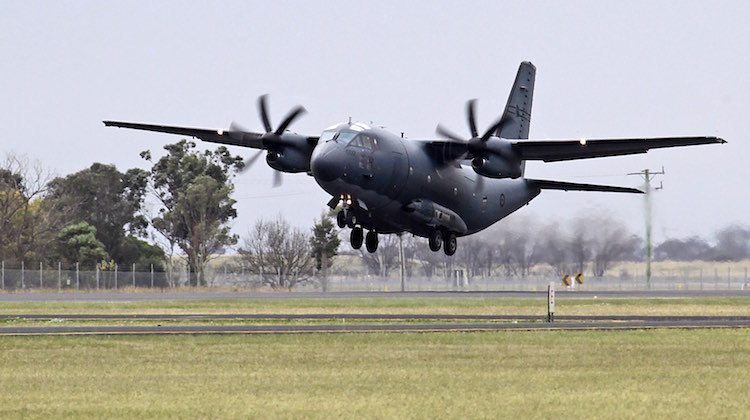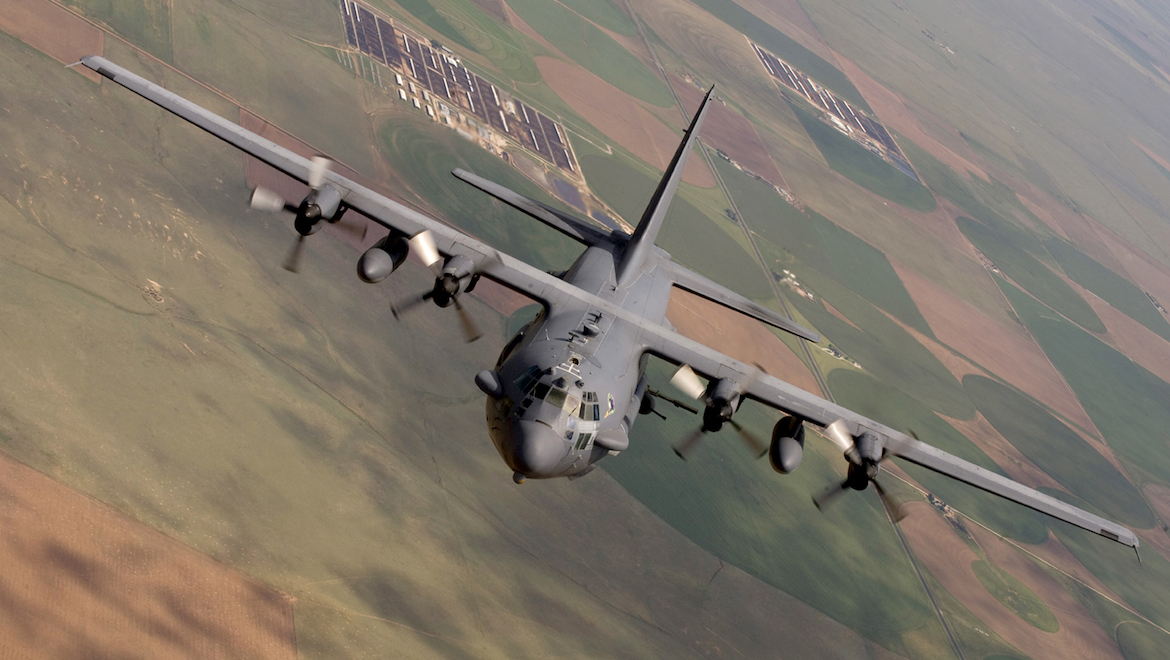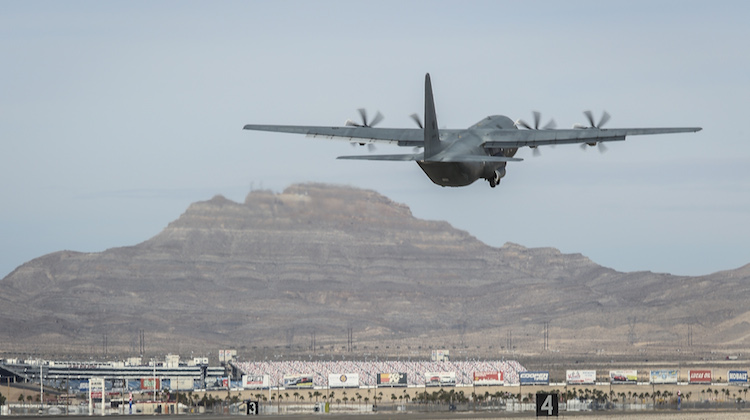
The United States Air Force AC-130 gunship is an awesome capability, but one which likely be far too expensive and difficult to justify for the Australian Defence Force.
Australian troops in Afghanistan certainly benefitted the AC-130’s ability to rain down hellfire from its onboard 105mm howitzer and, depending on variants, Bofors 40mm gun, 25mm cannon and 7.62 miniguns.

US defence giant Northrop Grumman is now developing a gunship-lite, in the form of its Palletised Weapons System (PaWS), in which a GAU-23 30mm Bushmaster cannon, ammunition and operator consoles slot in and out of the hold of a C-27J Spartan on standard cargo pallets.
The company advertises a conversion time of four hours but says it has done it in two. That means any of the RAAF’s 10 new Spartans could be delivering cargo one day and flying as a gunship in support of troops the next.
This isn’t yet a capability for which the ADF has yet expressed a requirement, although it has discussed it with Northrop Grumman.
“The Australian air force, as we have had discussions, are interested in, for now, the intelligence, surveillance, reconnaissance (ISR) portion of PaWS, which is the heart of the system, with other capabilities potentially down the road,” said Chris Foster, Northrop Grumman senior business development representative for special mission aircraft.
He said PaWS featured modular open architecture which meant it was highly adaptable.
“We can put it on and make you a surveillance package but down the line if you wanted to have a strike package or a medevac or casevac, we can certainly do that as well,” he said.
The Italian air force, with its fleet 12 C-27J aircraft, is the launch customer for the gunship capability, which has been trialled in Italy in its basic form, with the gun fired from the port side doorway.
Next step is development of trainable software to allow the gun to be linked to the aircraft’s EO/IR system and aimed by the onboard operator.
But there’s more. With a palletised Common Launch Tube system, C-27J could also deliver the new families of small precision guided weapons, flares, sonobuoys or drones.

In order for any of this to work properly from an Australian C-27J, the aircraft would need an onboard EO/IR system.
It need not be C-27J – PaWS could also be integrated to the RAAF’s C-130J Aircraft.

Foster said that while the 30mm gun is a graphic and impressive capability, PaWS was much more and its heart was the onboard mission management systems.
“With PaWS, we can host a variety of sensors, radars, radio, datalink equipment and EO/IR solutions. It can all be built specific to the mission our customers need to prosecute,” he said.
That means a C-27J could perform surveillance, search and rescue or humanitarian and disaster relief.
“You can have anywhere from one to three of these mission operating systems. The beauty of it is it is all open architecture. Whatever plug and play aspect of a mission system you want to put into it we can integrate it into this mission management system,” he said.
“The operators can operate sensors, fire weapons, as well as the pilots. But all the action happens right here at our mission operating system.”
The RAAF took delivery of its 10th and final C-27J in April 2018.
Initial Operating Capability (IOC) for the C-27J was achieved in December 2016, while Final Operating Capability (FOC) was scheduled to be declared in late 2019.
VIDEO: A look at the April 2018 arrival ceremony of the 10th and final C-27J Spartan at RAAF Base Richmond from the RAAF YouTube channel.




